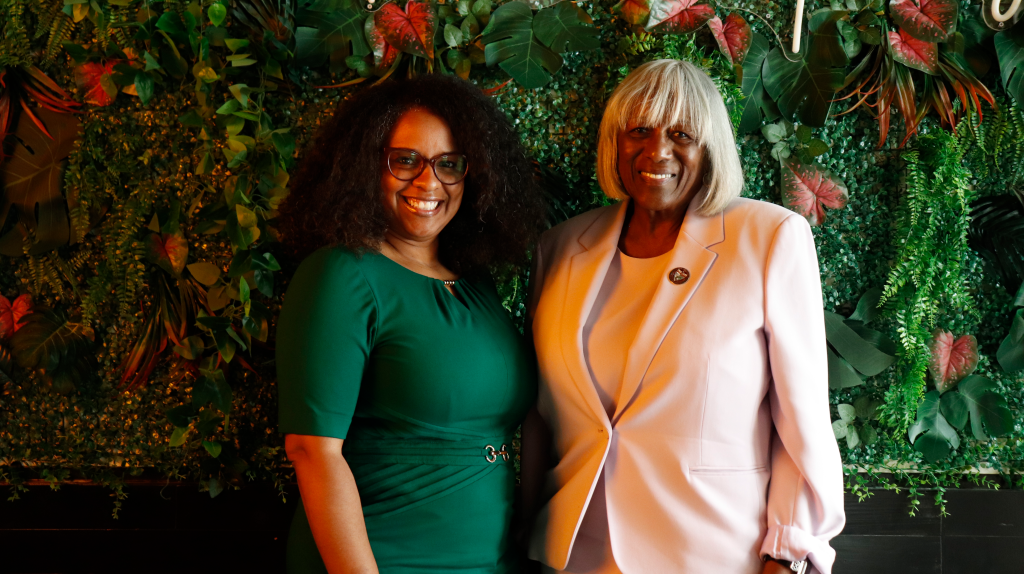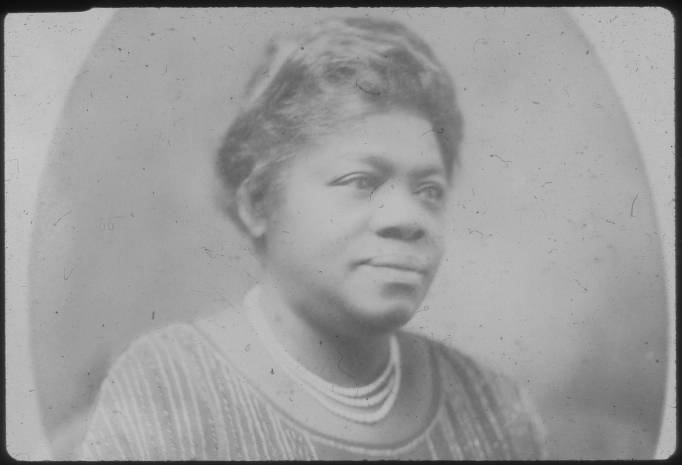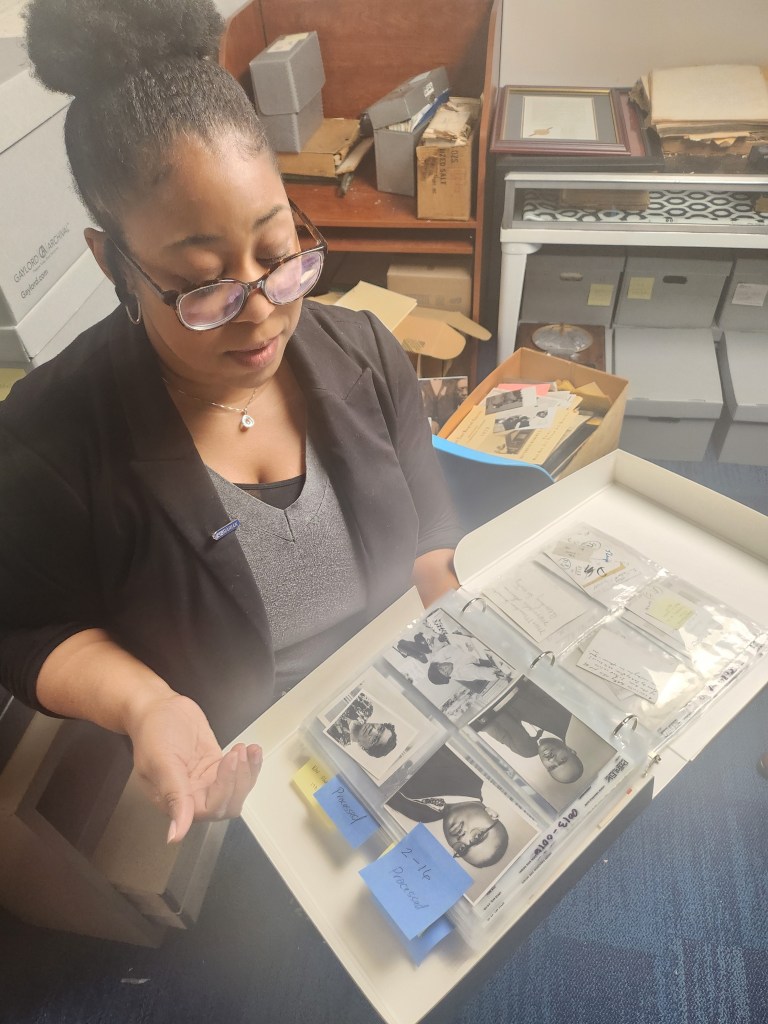Trust digitizes stories of historically Black colleges and universities and expands access

By Julita Bailey-Vasco | September 3, 2025
Launched in 2023, the HBCU Digital Library Trust is on a mission to reach the next generation of students, researchers, and information seekers through one digital platform with materials showcasing the history of Black academia in the United States post-emancipation.
Funded by the Harvard & the Legacy of Slavery Initiative, the work of the Trust is built on the strong foundation of the digital preservation movement, which began in the 1970s. This movement gained momentum in the United States in the 1990s. In the early 2000s, Janice Franklin and Loretta Parham led the way in introducing collective digital preservation to HBCUs, co-founding the HBCU Library Alliance, a group committed to supporting the sustainability of historically Black colleges and universities libraries at large. In 2006, the Mellon Foundation provided a $375,000 grant to Cornell University and the HBCU Library Alliance. This grant supported the launch of the HBCU Digital Collection.
“Although the full Black experience consists of more than education, the evolution of Black higher education, is a very important aspect that people sometimes overlook,” said Andrea Jackson Gavin, the program director of the HBCU Digital Library Trust. “Whether it’s the record of Black people building or founding their own institutions, or white people like the first president of Paine College working alongside Black people to create new systems and structures, the Trust is about maintaining a repository of the history of Black education, that travels from the end of slavery, to the reconstruction era, through today.”
Twenty years ago, the goal of the HBCU Digital Collection was to archive and make accessible HBCU founding materials such as the “Texas State University for Negroes Plan of the Campus”, June 1949. Today, the collection is not only home to founding HBCU documents but also preserves materials such as an interview with Mary McLeod Bethune, 1953, the founder of Bethune-Cookman University, who was a philanthropist and civil rights activist, an advisor to president Franklin D. Roosevelt, and the daughter of enslaved people.

In 2008, the Atlanta University Center Woodruff Library became the host of the digital collection, an early digitization program that aimed to expand access to the archival collections at historically Black colleges and universities.
As part of a four-year commitment, Harvard & the Legacy of Slavery (H&LS) Initiative contributed six million dollars in 2023 to launch the HBCU Digital Library Trust with Harvard Library, working in partnership with the HBCU Library Alliance and the Atlanta University Center Woodruff Library. The Trust is a priority for Harvard Library in its efforts to improve the discovery and accessibility of special archival and digital collections for all. To expand the HBCU Digital Collection, the Trust both broadens access and builds capacity so that institutions can benefit from advanced technology and digitization expertise and support.
By 2027, the Trust hopes that all 102-plus HBCUs are contributors. To date, the Trust has digitized over 16,000 materials.
“The HBCU Digital Library Trust exemplifies the power of collaboration to expand access to knowledge” said Martha Whitehead, the vice president for the Harvard Library and University Librarian and Roy E. Larsen Librarian for the Faculty of Arts and Sciences. “Harvard Library is honored to be a partner in making these vital collections available so more people can discover the stories that have shaped American life.”
The Trust is about maintaining a repository of the history of Black education, that travels from the end of slavery, to the reconstruction era, through today.
Andrea Jackson Gavin
The Trust in action
Located in Nashville, Tennessee, American Baptist College (ABC) is one of the smallest HBCUs and a proud contributor to the Trust, having archived over 300 materials since 2024. The Trust has provided an invaluable capacity to its director of library services, Angel Pridgen. Through the support of a traveling archivist and digitization project manager, who helped identify materials to be archived, created an inventory, and packaged the materials for digital scanning, ABC is already observing an influx of engagement with its digital collection, receiving over 125,000 hits and approximately 10,000 unique visits to date.
Pridgen said she sees ABC’s digital collection as more than just an archive.
“I envision American Baptist College’s digital collection as functioning not only as an educational tool that supports academic inquiry and curriculum development but also as a genealogical resource that helps individuals connect with personal and communal histories,” Pridgen said. “I hope the collection strengthens our institutional legacy while deepening public understanding of our contributions to religious, educational, and civil rights history.”

Shaw University (SU) is one of the newest contributors to the Trust. Founded two years after the Emancipation Proclamation, SU is the first HBCU established south of the Mason-Dixon line. The Trust is currently working to digitize their archival collection.
“Shaw University’s partnership with the HBCU Digital Library Trust affirms our commitment to preserving and sharing the rich history of our institution” said Paulette Dillard, the president of Shaw University. “This collaboration safeguards the legacy of those who built and sustained Shaw University while expanding access for scholars, students, and future generations. We are honored to contribute to this important collective effort.”
Part of an enduring commitment
The work of the Trust is part of the H&LS Initiative’s ongoing commitment to developing enduring partnerships with HBCUs as recommended in the Report of the Presidential Committee on Harvard & the Legacy of Slavery. The Report acknowledges that Harvard, like many other institutions of higher learning, benefits from the scholarship of HBCU alumni. HBCUs have been crucial in producing professionals, leaders, and changemakers who make significant contributions to American society. Beyond that, HBCUs contain records that show that Black people sought an education during slavery and after abolition. HBCUs supported formerly enslaved people (such as Booker T. Washington, an alum of Hampton University) and continue to support the direct descendants of enslaved people.
“The HBCU Digital Library Trust advances one of the Initiative’s three strategic priorities – deepening our partnerships with HBCUs” said Sara Bleich, the vice provost for special projects, Harvard University and leader of the H&LS Initiative. “The work of the Trust adds capacity to HBCUs and reminds us of their rich histories and contributions to American society.”
To learn how to be a participating contributor of the HBCU Digital Library Trust, contact Andrea Jackson Gavin – andrea_jacksongavin@hbcudigitallibrarytrust.org for more information.
